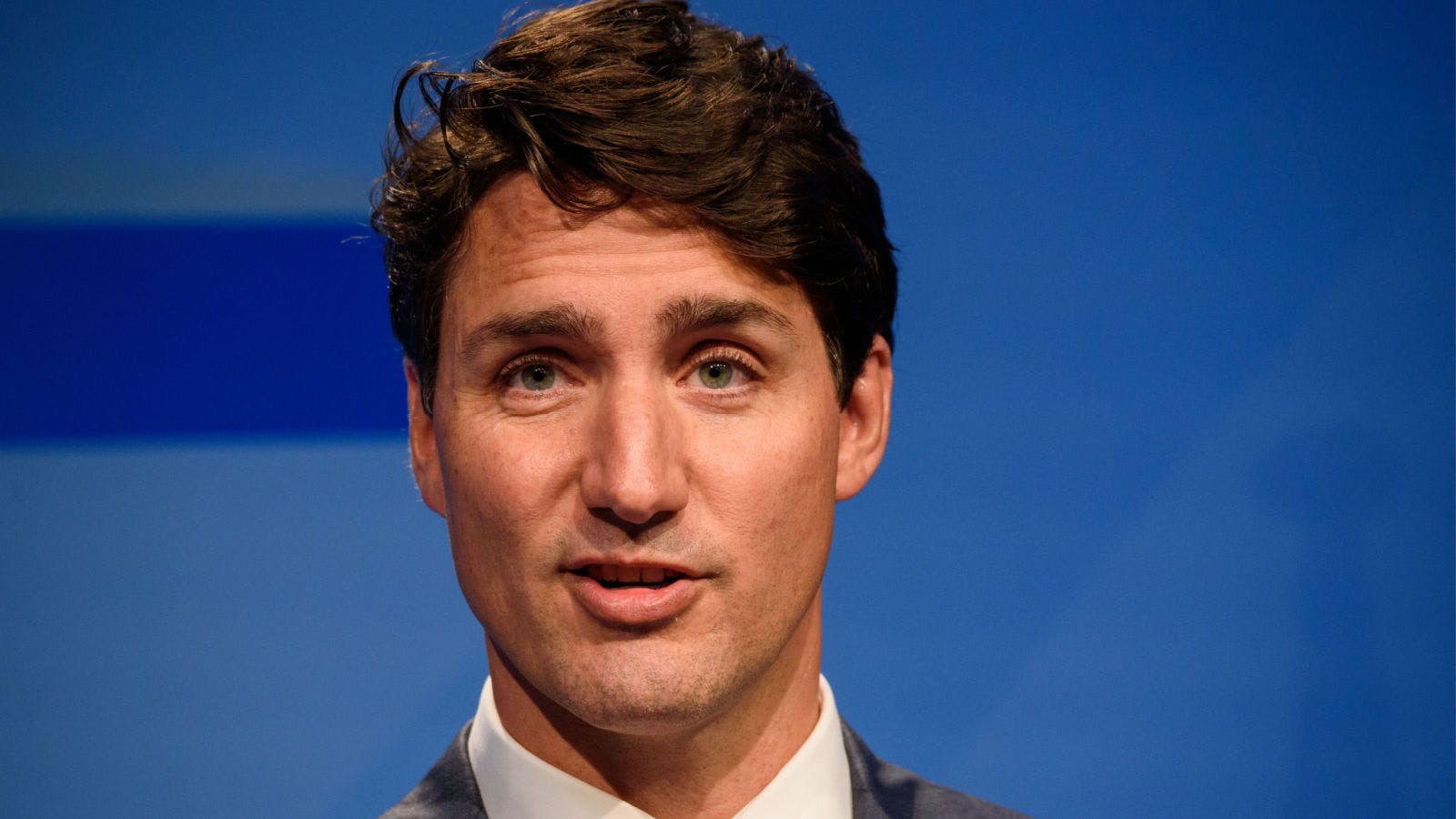Canada Moves To Protect Financial Sector From Crypto ‘Challenges’
Canada is opening consultations with crypto industry stakeholders as part of a formal legislative review of the financial sector

Canadian prime minister Justin Trudeau | Source: Shutterstock
In Canada, the government is entering consultations with crypto industry stakeholders to address the digitalization of money, which it sees challenging democratic institutions around the world.
The North American nation, which includes 10 provinces and three territories, said in its 2022 budget announcement that digital assets continue to play a pivotal role in sanctions evasion while simultaneously facilitating illegal activity.
The well-worn narrative has been echoed in the past by several major governments around the world including China, the US and India.
In keeping up with the times, Canada said it is seeking to establish a financial sector legislative review to examine the digitalization of money, with a mind to shore up financial sector stability and security.
The government will meet with those involved with cryptocurrencies, stablecoins and central bank digital currencies (CBDCs) starting this week.
Earlier this year, Prime Minister Justin Trudeau famously quashed bitcoin-fueled protests from Canadian truckers, dubbed the Freedom Convoy 2021, who opposed government-imposed COVID-19 mandates.
The truckers managed to raise at least $1 million via the bitcoin-fundraising platform Tally, circumventing monetary controls after they were shut out of other platforms, including GoFundMe, at the behest of Canadian officials.
More recently, Trudeau took aim at elected opposition leader Pierre Poilievre in September, where he labeled his rival’s views and aspirations for the “volatile” asset class as irresponsible leadership.
Quebec, Canada to suspend hydroelectricity to crypto miners
Samson Mow, former chief strategy officer at Bitcoin infrastructure provider Blockstream, told Blockworks he is disappointed in Canada’s stance.
“The digitalization of money is not the problem here. Money has been digital for a very long time. The issue is that with the advent of Bitcoin, money is now digital but outside of their control,” the Canadian-Chinese national said.
Mow, who now heads up Bitcoin technology firm JAN3 and runs gaming studio Pixelmatic, said Canada had traditionally been hard on crypto, namely bitcoin, in the past.
He said those hostilities included refusing to bank bitcoin companies and denying the allocation of power to mining firms despite Canada having abundant excesses energy.
Indeed, a major utility provider from Canada’s largest province, Quebec, has asked the region’s energy regulator to suspend allocation of hydroelectricity to bitcoin miners.
“Approximately 270 MW were slated to be dedicated to cryptographic use [crypto mining] over the short term, but the allocation of that amount of capacity to this use would increase pressure on current balances,” publicly regulated Hydro-Quebec said in a Wednesday statement.
The country’s stance against miners — those providing security and stability to proof-of-work blockchains, predominantly Bitcoin — has been somewhat hostile in recent years, forcing many of the industry’s largest players to seek clean energy elsewhere.
“Until governments recognize that money needs to be money and not a tool for surveillance or something they need to ‘manage’ their citizens are in for a bad time,” Mow said.
Get the news in your inbox. Explore Blockworks newsletters:
- The Breakdown: Decoding crypto and the markets. Daily.
- 0xResearch: Alpha in your inbox. Think like an analyst.






